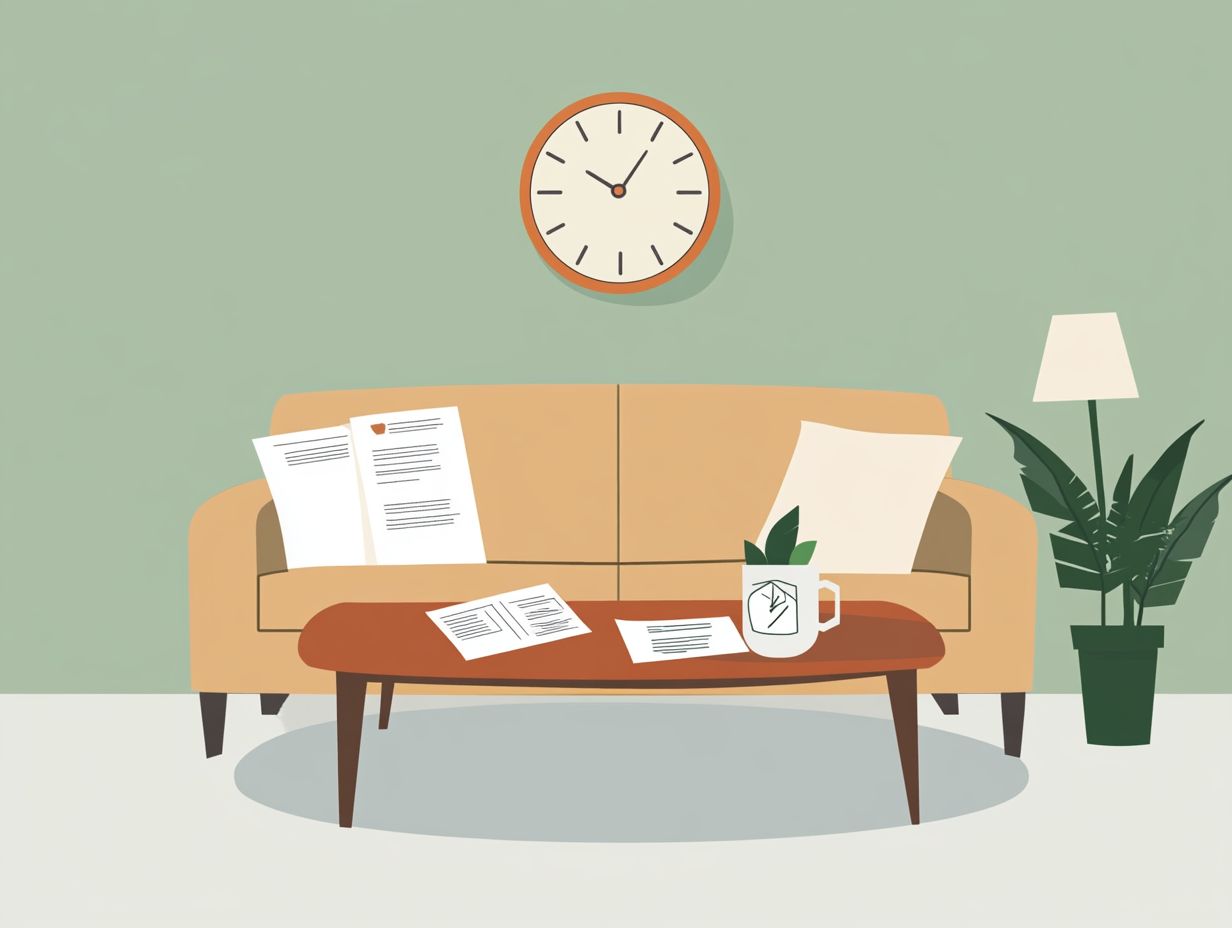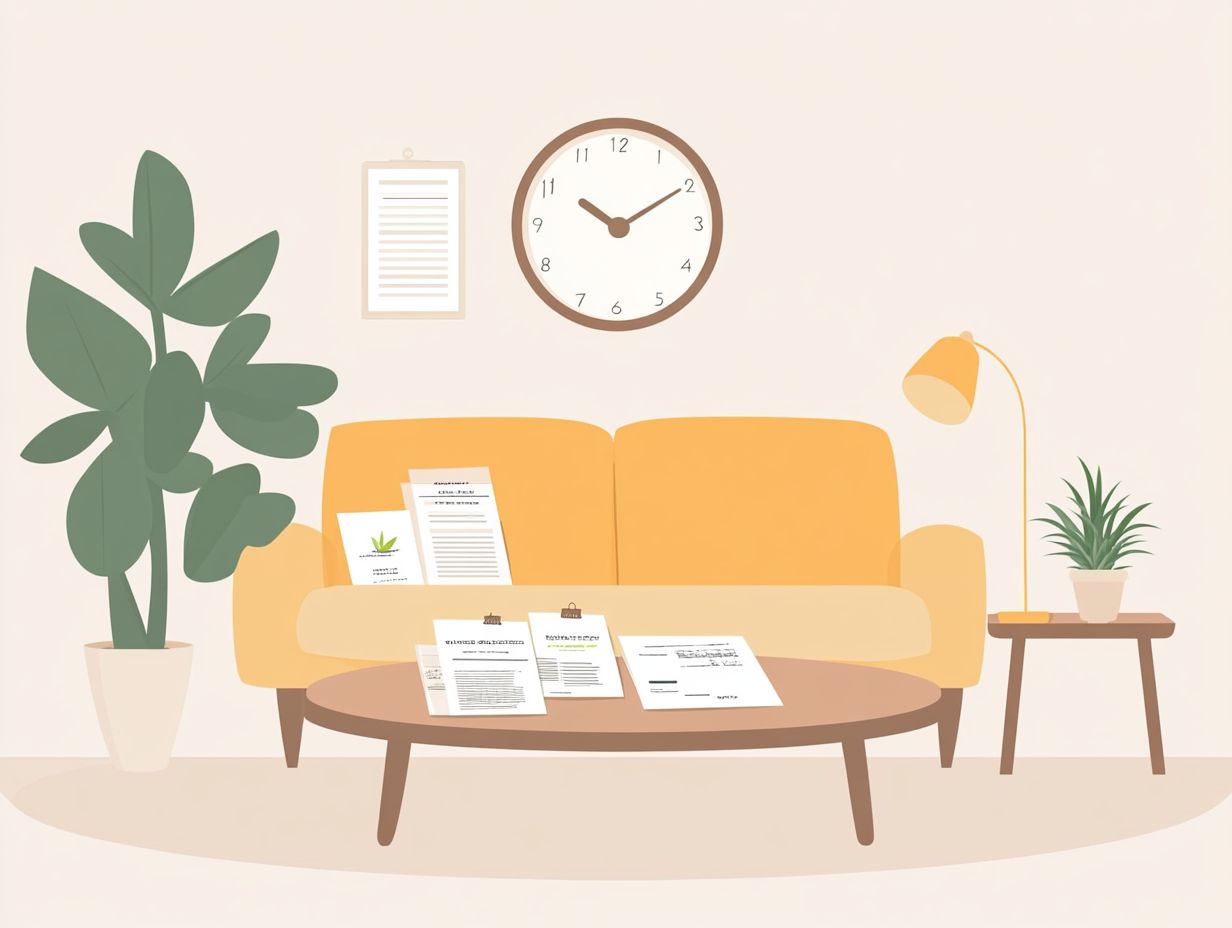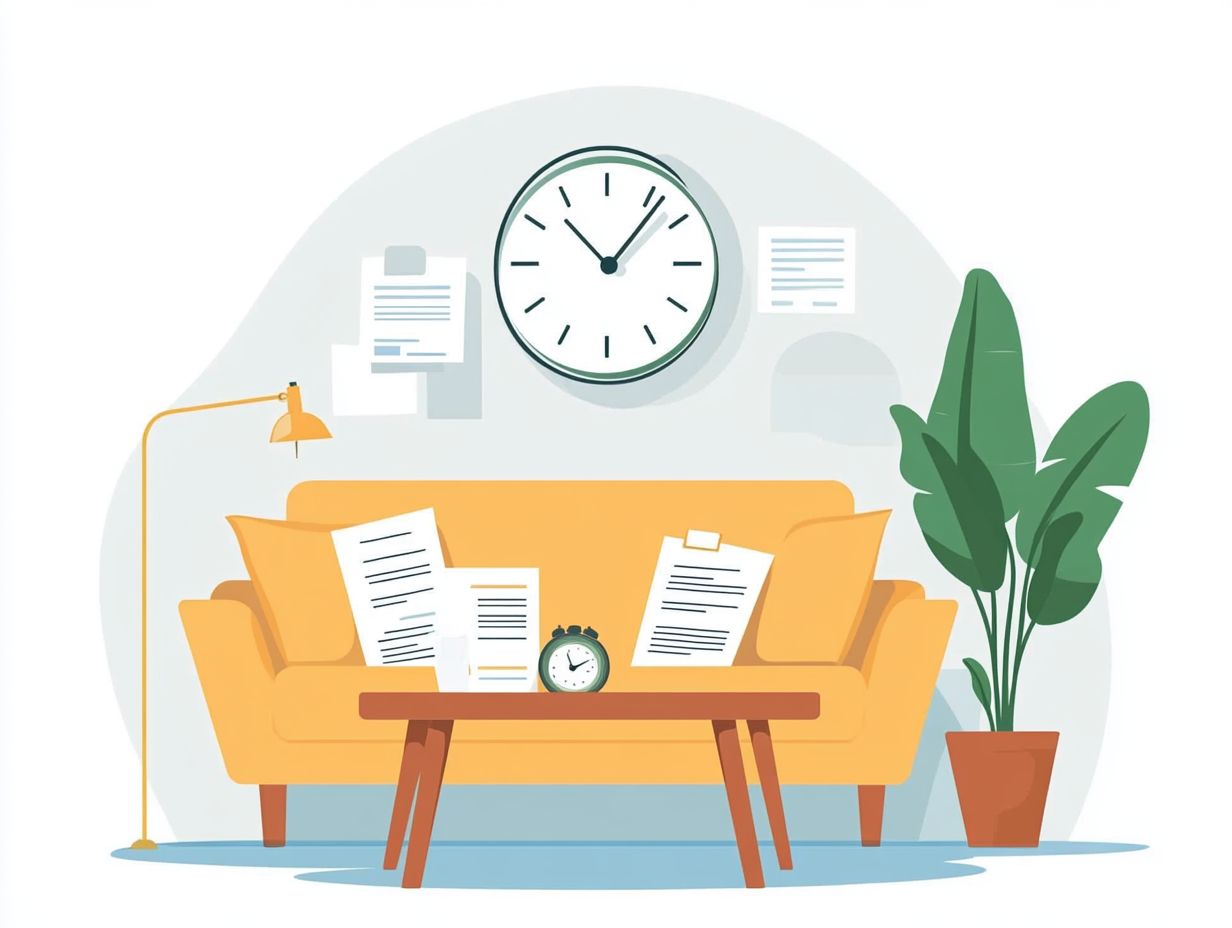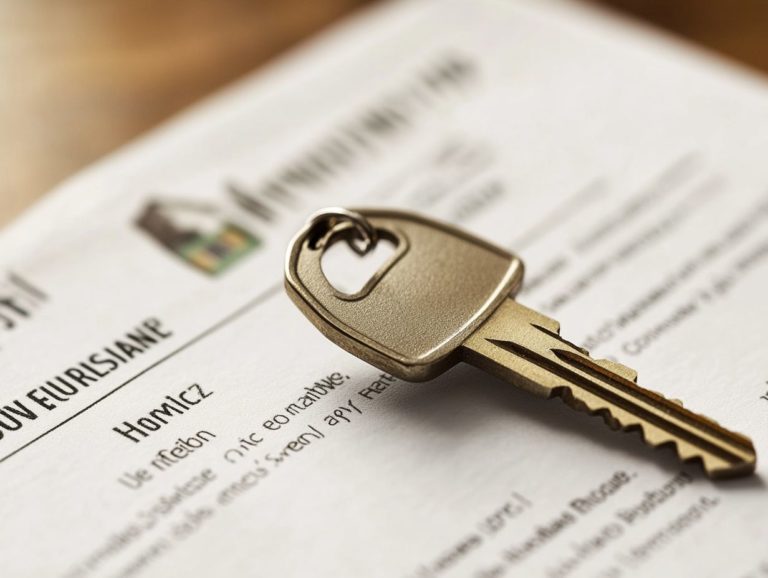What is the Home Insurance Grace Period?
Navigating home insurance can feel overwhelming, particularly when you’re trying to make sense of policy terms like the grace period.
This article explains what a home insurance grace period is, its purpose, and how it functions. You’ll discover its duration, what happens during this timeframe, and the advantages it brings.
This article highlights the risks of overlooking this opportunity, along with practical tips to maximize your grace period. Whether you re a first-time homeowner or just seeking to brush up on your knowledge, this guide provides you with essential insights to navigate your home insurance confidently.
Contents
- Key Takeaways:
- Understanding Home Insurance Grace Period
- How the Grace Period Works
- Unlock the Benefits of Your Grace Period!
- Risks of Not Utilizing the Grace Period
- Tips for Utilizing the Grace Period Effectively
- Frequently Asked Questions
- What is the Home Insurance Grace Period?
- Is the Grace Period the same for all home insurance policies?
- What happens if I miss my payment during the Grace Period?
- Can I request an extension for the Grace Period?
- Is the Grace Period the same as a reinstatement period?
- Is it common for insurance companies to offer a Grace Period?
Key Takeaways:

- The home insurance grace period allows payment without penalty.
- Typically lasts 10-30 days depending on the insurance company.
- Coverage remains in effect during this time.
- Understanding consequences of missed payments is vital.
Understanding Home Insurance Grace Period
Understanding the home insurance grace period is essential for you as a homeowner striving to maintain enough coverage to keep you secure financially.
This grace period allows you to make a missed payment without the threat of insurance cancellation, enabling you to retain your coverage under your home insurance policy.
It acts as a safety net, emphasizing the importance of adhering to the insurance guidelines established by your provider to avoid the risks associated with policy lapses.
For those categorized as high-risk homeowners, being well-informed about your options are absolutely crucial.
How the Grace Period Works
The grace period serves as a valuable safeguard for you as a homeowner after you’ve missed a payment, providing the chance to rectify the situation without facing immediate consequences for your home insurance policy or insurance rates.
During this time, you have the opportunity to thoroughly review your insurance documentation and get a good idea of your coverage limits, which refer to the maximum amount your insurance will pay for a claim. This awareness is essential, as lapses in coverage can lead to risks of premium increases down the line.
Length of Grace Period
The length of the grace period can vary significantly among different insurance providers, typically falling between 10 to 30 days. This variability is largely dependent on the specifics of your home insurance policy and its coverage requirements. Such flexibility allows you to navigate temporary financial challenges without the immediate risk of losing your coverage.
It’s crucial to understand that several factors influence these variations. Regional regulations, individual company policies, and even the nuances of your personal situation can determine how long your grace period lasts.
For example, some insurers may offer extended grace periods in states grappling with higher rates of economic hardship, while others might impose shorter terms based on their risk assessments.
As you weigh your options, keep these differences in mind. The length of your grace period can significantly affect your ability to make timely payments and maintain the essential protection your property deserves.
You must review your policy or contact your insurer for clarity on your grace period.
What Happens During the Grace Period

During the grace period, you have a valuable opportunity to address any missed payments without the looming threat of insurance cancellation. This is particularly important if you need to file a claim for damages during this time.
This period also acts as a critical safeguard against insurance fraud, as insurance companies will closely scrutinize claims. It’s essential for you to explore various payment options, including the possibility of setting up a plan to bring your premium up to date.
Communicating with your insurance provider is key. Understanding the specifics of your coverage and your obligations during the grace period can make all the difference. Ensuring that all required documentation is submitted correctly can prevent potential issues when you do file a claim.
By actively engaging with your insurance company and maintaining meticulous records, you can safeguard your coverage and avoid complications. This ultimately strengthens your position should you need to file claims in the future.
Unlock the Benefits of Your Grace Period!
The grace period offers a wealth of advantages for homeowners, granting you enhanced flexibility and convenience in managing your home insurance payments.
This short break acts like a safety net, giving you peace of mind during tough times and allowing you to maintain your coverage during unforeseen financial challenges.
It also fosters responsibility in insurance management by emphasizing the importance of staying current with premium payments to sidestep potential pitfalls.
Flexibility and Convenience
Flexibility and convenience are your allies when it comes to the grace period. They allow you to manage your home insurance premiums more effectively during financially challenging times.
Imagine facing unexpected expenses, like a medical emergency or urgent home repair; it can be quite a struggle to juggle your regular financial commitments. In these situations, the grace period serves as a crucial lifeline, enabling you to postpone payments without the immediate concern of policy cancellation.
This extra breathing room not only eases financial pressure but also gives you the power to better manage your homeowner policies. It allows you to prioritize essential expenses while maintaining your insurance coverage.
By grasping how this flexibility works, you can strategically plan your budget, leading to a much greater sense of peace of mind.
Risks of Not Utilizing the Grace Period
Neglecting to take advantage of the grace period can expose you to substantial risks, including the very real threat of insurance cancellation and its far-reaching consequences, especially for those in high-risk categories.
If you fail to make timely payments, you may end up with insurance placed by the lender at a higher cost, which often comes with limited coverage options.
It’s essential to stay proactive to safeguard your interests. Don’t let a missed payment derail your security act now to protect your home!
Possible Consequences

Missing the grace period can carry serious consequences for you, potentially leading to insurance cancellation. This not only skyrockets your insurance rates but also limits your liability coverage as a homeowner.
When you fall behind on your premium payments, you risk losing essential insurance protection, along with the very real possibility of claims denial at critical moments. A lapse in coverage means that any damages occurring during that time won t be covered, leaving you financially exposed.
Moreover, financial institutions may take a closer look at your credit scores, which could reveal a troubling pattern of missed payments. This scrutiny can hinder your future mortgage applications or refinancing options.
The ripple effects of these lapses can create a precarious situation, impacting your financial stability and long-term asset protection.
Tips for Utilizing the Grace Period Effectively
To effectively utilize the grace period, homeowners must be proactive and well-informed. This ensures they maximize their financial protection while navigating their home insurance policies.
This means thoroughly understanding the terms set forth by the insurance company and seeking advice from insurance professionals who can provide tailored insights on managing payments and coverage options.
Key Considerations and Best Practices
Clear communication with your insurance provider is crucial. Keep your insurance documents organized to avoid pitfalls.
As a homeowner, understand the terms of your policy. Grace periods can vary widely, so review your payment schedule regularly.
Set reminders for due dates to create a better payment routine. Discuss options with your insurance provider to learn about possible extensions or flexible arrangements.
Using these strategies secures your financial interests and strengthens your relationship with your provider. This enhances your overall financial protection.
Frequently Asked Questions
What is the Home Insurance Grace Period?

The Home Insurance Grace Period is the time after your premium’s due date. You can still pay without a penalty or losing coverage.
Is the Grace Period the same for all home insurance policies?
No, the length of the Grace Period varies by provider and policy type. Check your policy documents or contact your agent for details.
What happens if I miss my payment during the Grace Period?
If you miss your payment, your coverage may be canceled. This means you lose protection and could face penalties.
Can I request an extension for the Grace Period?
You may request an extension, but it’s up to your provider’s discretion. Be aware that there may be fees or requirements.
Is the Grace Period the same as a reinstatement period?
No, they are different. The Grace Period allows you to pay without penalty, while the reinstatement period is for reinstating a canceled policy.
Is it common for insurance companies to offer a Grace Period?
Yes, many companies provide a Grace Period as a courtesy. However, always pay your premiums on time to avoid coverage lapses.



